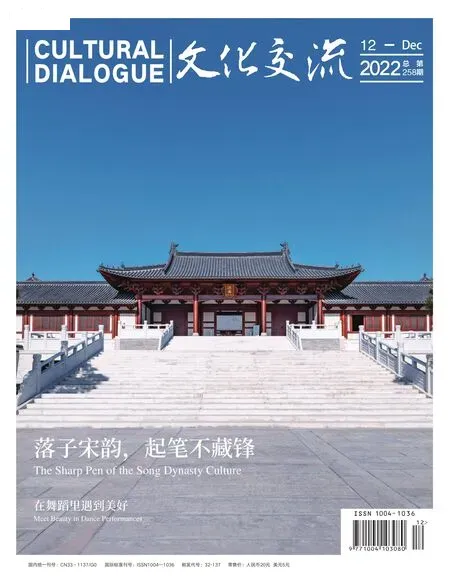王阳明与故乡
2023-01-31文/陈醉仇欢
文 /陈 醉 仇 欢
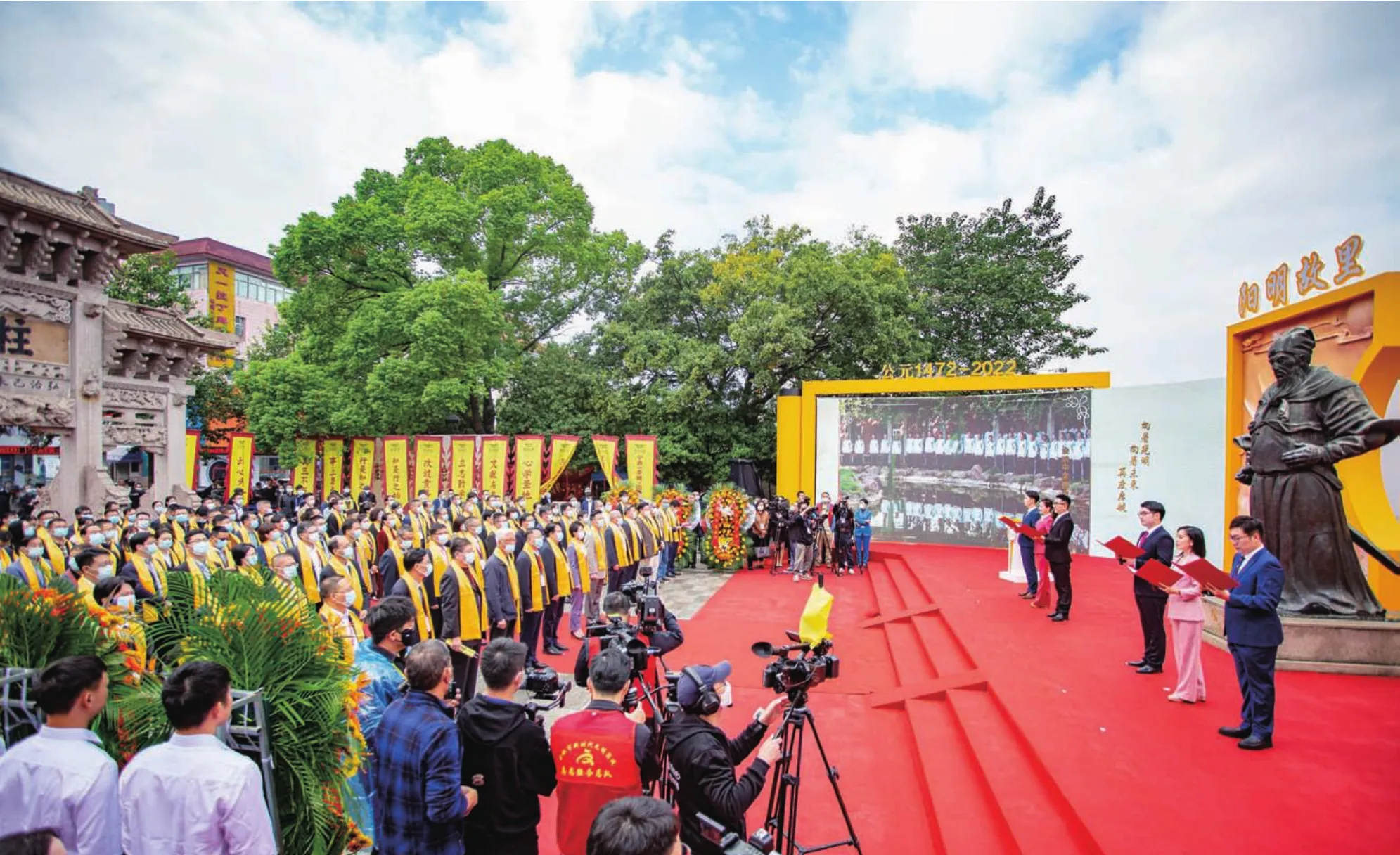
2022宁波(余姚)阳明文化季活动现场。The 2022 Ningbo (Yuyao) Yangming Cultural Festival was held to commemorate the 550th birthday of Wang Yangming.
11月底,在“阳明故里”宁波余姚,一场事关王阳明的盛会—“世界阳明学大会”鸣锣启幕。
这里,狭长的宁绍平原孕育出浙东学派、四明学派、阳明心学等熠熠生辉的学术思想,近代著名学者梁启超评价:“余姚区区一邑,自明中叶至清中叶,两百年间硕儒辈出,学风沾被全国及海东。”这其中,“阳明心学”尤为耀眼。
王阳明是被梁启超称为“两个半圣人”之一的心学集大成者,风靡海内外达五个世纪之久。
“月是故乡明”!王阳明出生、成长在余姚,悟道在贵州,立功在江西,归葬在绍兴,足迹遍及大半个中国。然而,中国自古有句老话,“一方水土养育一方人”,强调故乡是个人成长的精神底色,余姚就是阳明心学萌发地、传播地,寄予了“出走半生,归来仍是少年”的美好愿望,是王阳明心中永远的“光明月”。
阳明的故乡与故乡的阳明,缺一不可!
今天,在“阳明故里”,抬头祈望灿烂星空,若这是古今圣哲贤达汇聚而成的星海,必有一颗是王阳明;也正是这一颗颗星辰,塑造了中国人独立、健全、完整的文化心理,点亮了我们今天的文化自信。
“格竹少年”王阳明—“三立”的火种
初读阳明心学,不免觉得晦涩。但当你纵观王阳明多维人生之后,你便会豁然开朗!
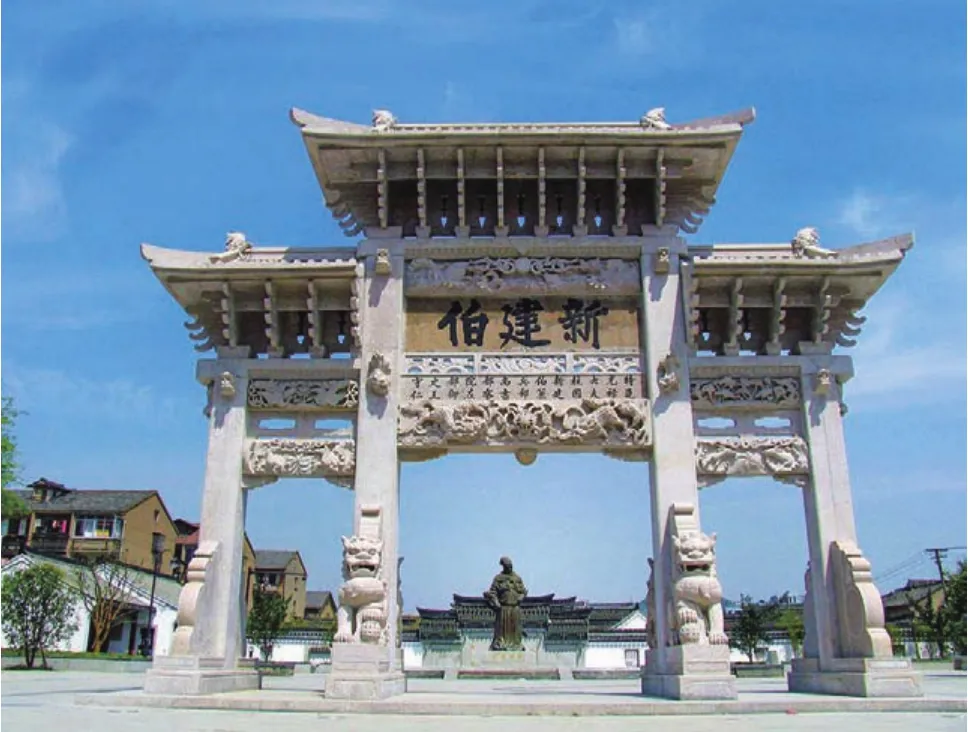
“新建伯”牌坊。徐渭明/摄The Duke of Xinjian memorial arch. Photo by Xu Weiming.
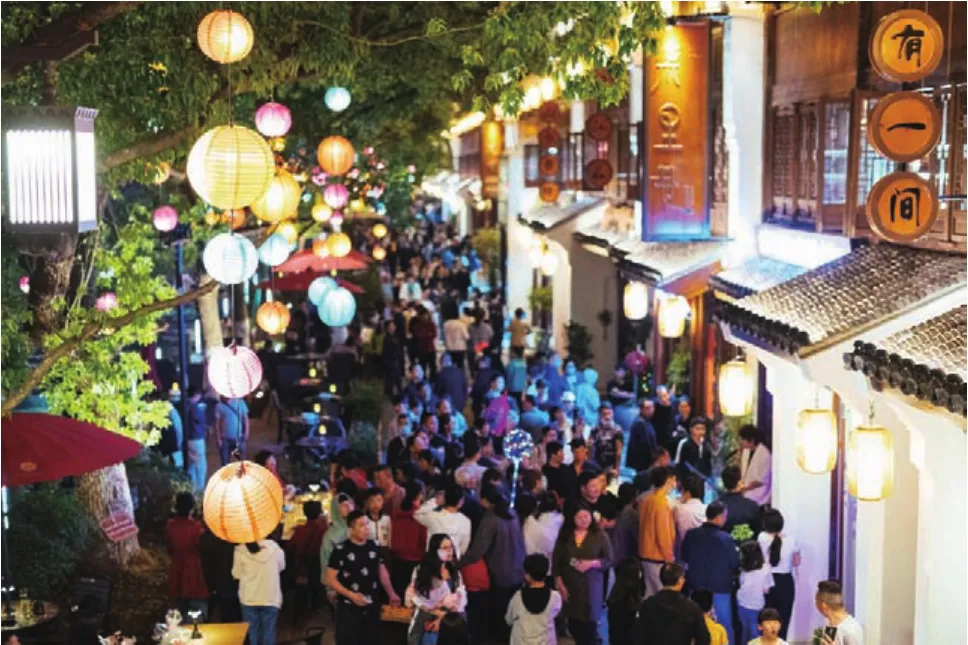
阳明古镇。The Yangming ancient town.
于1472年10月31日出生的王阳明,是个天蝎座,内心细腻,总是想得太多。比如,他常常纠结自己究竟该做一个什么样的人?很快,他就找到了不同寻常的宏大目标:做“天下第一等事业”。
可是,目标之下,少时的王阳明却是现代词汇里的“问题少年”,做游侠、学骑射、迷辞章、悟道学、参佛学,因这著名的“五溺”,他没少挨长辈的板子。成年后,也是命运多舛,历尽科举不第、贬谪受诬等坎途,幸而,他仍怀抱“光明心”,志若鸿鹄,终于等来了开挂时刻—“龙场悟道”,成为一代旷世大儒。
“问题少年”到“一代圣人”,“立德、立功、立言”,王阳明这一路更像是“打怪升级”,“拼”的是一股子执拗劲儿。
比如立德,若有人告知你,圣贤说“格物致知”,就能领会万事万物之道。你会试吗?大概率就是一笑置之吧。可王阳明真的去试了,他对着自己家院子里的竹子,一坐就是七天七夜,不吃不喝,直到把自己“格”倒。此后,经过大量实践与内心煎熬,在1509年那个贫瘠的贵州龙场,他终于顿悟“圣人之道,吾性自足”,这就有了“阳明心学”。
而说到立功,王阳明主要的三次军功都非常瞩目:1517年平定江西匪乱,1519年平定宁王“宸濠之乱”,1527年平定广西边乱,几次危中求胜,力挽狂澜。曾有弟子问他,用兵的技巧是什么?他答:哪有什么技巧,只是努力做学问,“此心不动”,人心坚如磐石,虽寡亦可胜!
再说立言,王阳明把讲学传道看得比立功还重要。在《阳明先生年谱》中记载着这样一个故事:在平定宁王“宸濠之乱”的战争中,前方激烈交战,王阳明在后方“见缝插针”开堂讲学,一旦有战报传来,他就暂停讲课,当场处理,处理完了,再开讲。可见,他对传道授业也是近乎疯狂地执着,一生的讲学轨迹几乎遍及大半个中国。
回头看,不难发现,在王阳明通往“三立”的路上,本质上,他还是那个余姚故居里“格竹”的执拗少年—不撞南墙不回头,这才是“燃烧”王阳明的真正火种。
放眼每个人的一世,难免要面对外在环境带来的艰难与悖谬,即便有些境遇无法改变,即便有些理想依然遥远,但最起码,要保有自觉的锐气,以强大的定力涵养自身,建立起自我与世界“高质量”的链接与对话方式。
“龙泉山主”王阳明—“心学”的发端
中国人历来看重故土,书画落款或诗文里常见“某地某某人”的自称。
1518年,王阳明在赣州平定寇乱后,向朝廷上书告病还乡,想到回余姚的可能,他兴奋地写下家信《与诸弟书》,嘱咐在故乡的诸弟:“为我扫松阴之石,开竹下之径,俟我于舜江之浒,且告绝顶诸老衲,龙泉山主来矣。”
归乡之迫切,就浓缩在这最后一句—“龙泉山主来矣”!
“龙泉山”在哪里?距离王阳明降生的“瑞云楼”只有百余米,可以说,出了家门,走几步,抬头即见此山。
龙泉山就如余姚的灵脉,承载着“东南名邑”千年气韵与人文积淀,沿着石阶小径,登上山顶,举目远眺,看尽一城的菁华。
在《送邵文实方伯致仕》中,王阳明提到,“舜水龙山予旧宅,让公且作烟霞伯”,还有“我爱龙泉寺,寺僧颇疏野”“久别龙山云,时梦龙山雨”“终年走风尘,何似山中住”等其他诗文妙句,都足以证明龙泉山深深烙印在王阳明的心中,成为他的乡愁标识。
龙泉山南坡,有一座重檐歇山顶五开间两层楼房,叫中天阁。初建于五代时期,其名取自唐代诗人方千的《题龙泉山绝顶》—“中天气爽星河近,下界时丰雷雨匀”,气势恢宏。
1521年秋天,年近五旬的王阳明回余姚省亲时,被钱德洪等余姚74位学子迎拜为师,讲学于此,创办了“龙山讲会”。他亲自写了一篇《中天阁勉诸生》,书于壁上。
今天再来看这文章,全文没有高高在上的教诲之言,更像是一个即将离家远行的师长,带着点不放心,“不要因为我离开余姚,就荒废学业”。离家后,“独夜残灯梦未成,萧萧总是故园声”,道尽了心中的家与国。
一座龙泉山,一位自封的“龙泉山主”,足见故乡带给王阳明的是温暖与坚韧,这就可以理解,在那些典籍、方志中记载的王阳明诗文中,故山、故园大多指向龙泉山、余姚城,它们既是现实故乡,又是心灵原乡。
何处是吾乡,何处不阳明。
哲学有三大终极之问:“我是谁?从哪来?到哪去?”这也是每个人都会遇到的人生考题。在中华五千年文化长河里,这个问题连着中国人的故土情结,若放在“阳明心学”的阅读理解题里,这“三问”又是解码“阳明心学”的另一把钥匙。
“知行合一”“致良知”都是名言,在王阳明的心学思想里,确定“良知”的现实要求是“视人犹己,视国犹家”,可见,至深的思乡情怀是他心学的发端处,而“视国犹家”的实现路径是“知行合一”的锤炼功夫。
“家国情怀”是对自己国家一种高度认同感和归属感、责任感和使命感,也是我们文化自信的根基。今天的我们或许比历史上任何时候都更应该读懂“龙泉山主”王阳明,锤炼个体由内向外的精神力量。
“千变万化”王阳明—文化的“远征”
500多年后的今天,余姚龙泉山一带新建中式牌坊、阳明故居、阳明古镇等建筑群,朝圣者不断,依稀就像当年王阳明讲学时的盛景。
你行走在这座“阳明故里”中,脚下踏着阳明路、新建路,眼睛随处能捕捉到冠以“阳明”两字的学校、机构、企业,还有当地人身上那种低调内敛的文人气息,隐隐约约都藏着“阳明精神”的影子。
这又是另一个“王阳明”的故事了,他是穿越时空的王阳明,是千变万化的王阳明。
昔日“龙泉山主”吟诵讲学的龙泉山,今天也是姚剧保护传承中心的安居处,中国首部姚剧《王阳明》便出自这里。
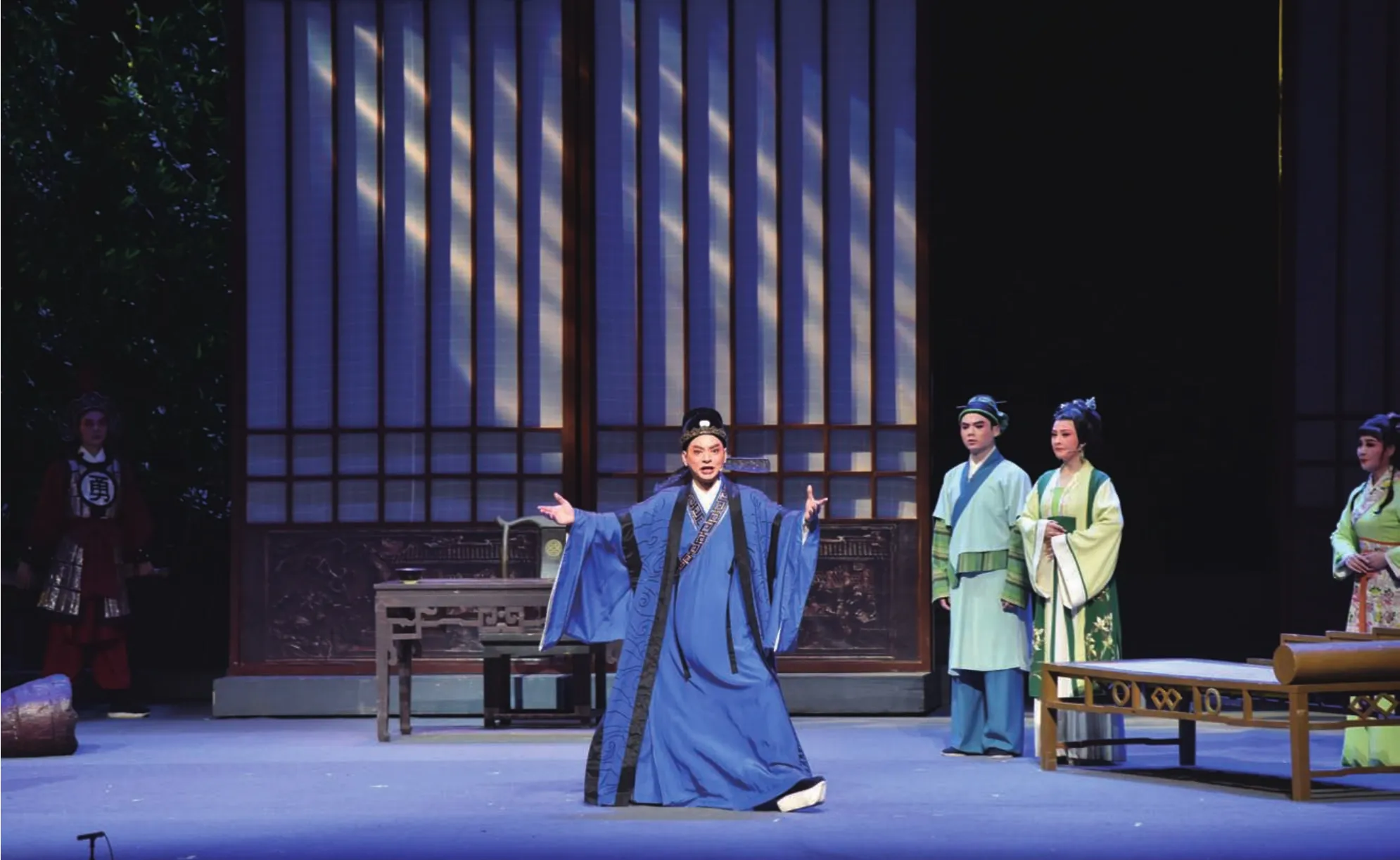
姚剧《王阳明》演出。Wang Yangming, a Yao opera, is staged.
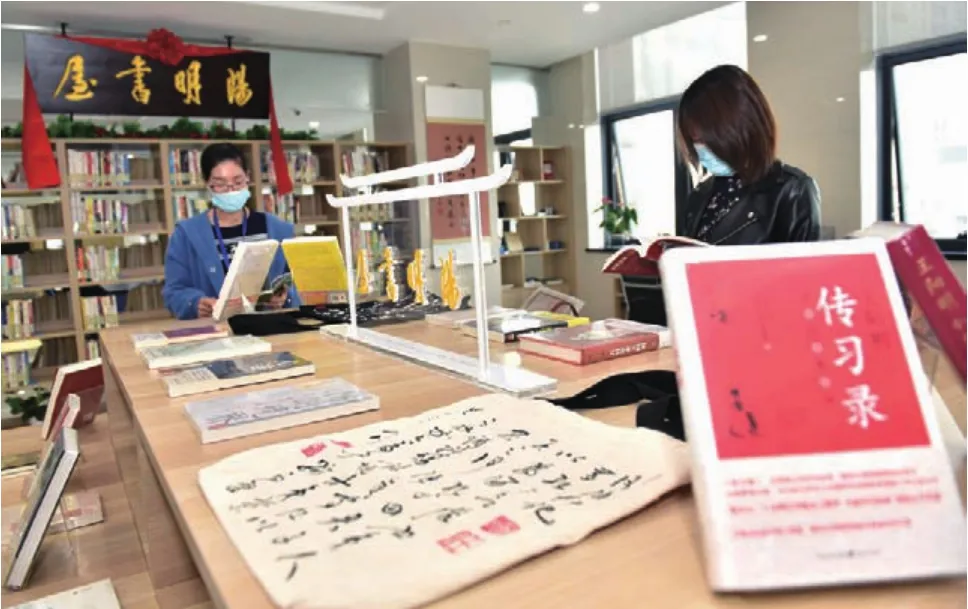
阳明书屋。The Yangming Bookshop.
“我想要潇洒一点,先跨左边一步。”“王阳明”第一代扮演者寿建立反复调整台步。该怎么演?“能做的,只有无限接近他!”这段“路”,他和团队花了整整3年时间。这个婉转唱腔间的“王阳明”,上过首都北京,去过中国台湾,到过日本,100场演出大获成功,给了世人一个可以对话的“余姚王阳明”!
“阳明故里”有一碗标志性的“黄鱼面”,鱼香扑鼻,肉嫩面滑,汤浓味醇,让品尝过它的许多人难以割舍,饕客们喜欢称它为“知行合一”面,因为,一碗面做了二十多年,功夫与心力早已化在细节处。
比肩国际龙头的“江丰”芯片靶材,搭载于手机和汽车的“舜宇”光学镜头,驱动新能源汽车的“容百”正极材料,走进千家万户的“富佳”家电,这些中国“牛企牛品”的共通点,都有着一颗“致良知”的内核,以及作为“知行合一”践行者的使命担当……
若将视野再放大,当今世界,何处不阳明?
这样的“阳明”,与书中的、史料中的、故事中的王阳明那么不同,他不仅仅是“坐而论道”的一项修心学问,更是“起而行之”地将阳明精神实化与物化,以千万种形态或形式融进当今社会生活的方方面面。
在整个哲学体系里,阳明学也是一种社会政治哲学,它并不完全讨论现代哲学中“人如何认识世界”的命题,而是包含一些对客观世界规则的认可。像“心即理”思想中,王阳明讲的“心”,并非主观的“心”,而是我们的“心”要跟客观世界的“理”吻合,这个“心”才构成真正的“良知”。这就不难理解,在长达500多年的时空里,文化迥异的东北亚国家如日本、韩国以及东南亚的越南等国家和地区,都深受“阳明学”的影响,也因此改变着当地政治经济和人文社会的发展格局。
从这个意义上来看,“千变万化”王阳明,既是一次中华优秀思想文化的“归来”,更是一次立足当下、指向未来的“远征”。
(感谢劳超杰对本文的贡献,图片由余姚市委宣传部提供)
Wang Yangming and His Hometown
By Chen Zui Qiu Huan
At the end of November, 2022, in Yuyao, Ningbo, the hometown of Wang Yangming, a grand event — the “World Conference on Wang Yangming Philosophy” opened.
Wang Yangming (1472-1529), called by Liang Qichao (1873-1929) as one of the “two and a half sages”, has been popular at home and abroad for five centuries. “The moon viewed at home is brighter!” Wang Yangming was born and bred in Yuyao,enlightened in Guizhou, meritorious in Jiangxi, and buried in Shaoxing, with his life journey covering more than half of China. Just as an old saying goes, “The unique features of a local environment always give special characteristics to its inhabitants”,emphasizing that hometown is the spiritual background of personal growth. Yuyao is the birthplace as well as the place disseminating Yangming philosophy, and the eternal “bright moon” in Wang Yangming's heart.
A first reading of Wang Yangming Philosophy may seem obscure to you. However, when you get familiar with Wang Yangming's multi-dimensional life, you will suddenly be enlightened! Wang Yangming was born on October 31, 1472.From a “problem youth” to a “sage”, Wang Yangming's life journey is more like a game of “fighting and upgrading”, with a stubborn spirit to achieve “three Li”.
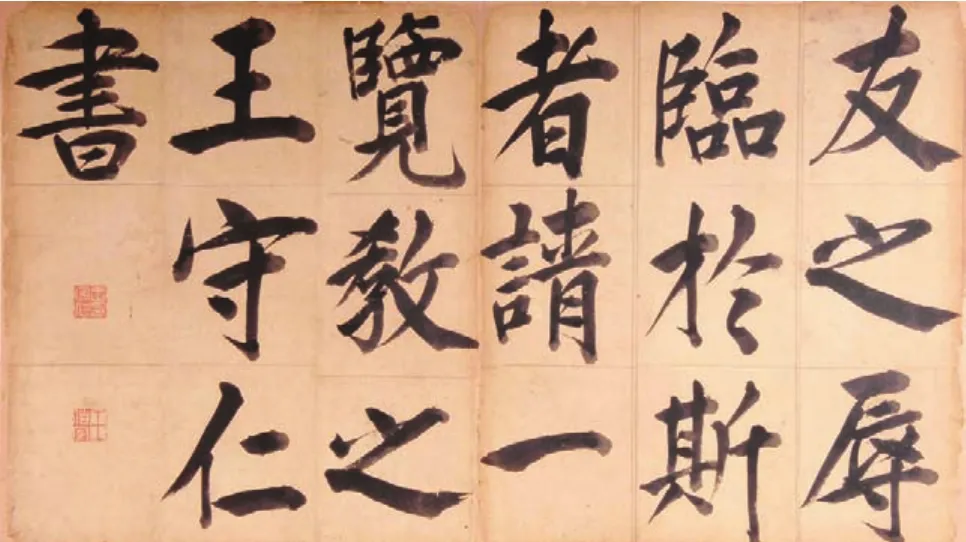
王阳明家书。Family letters of Wang Yangming.
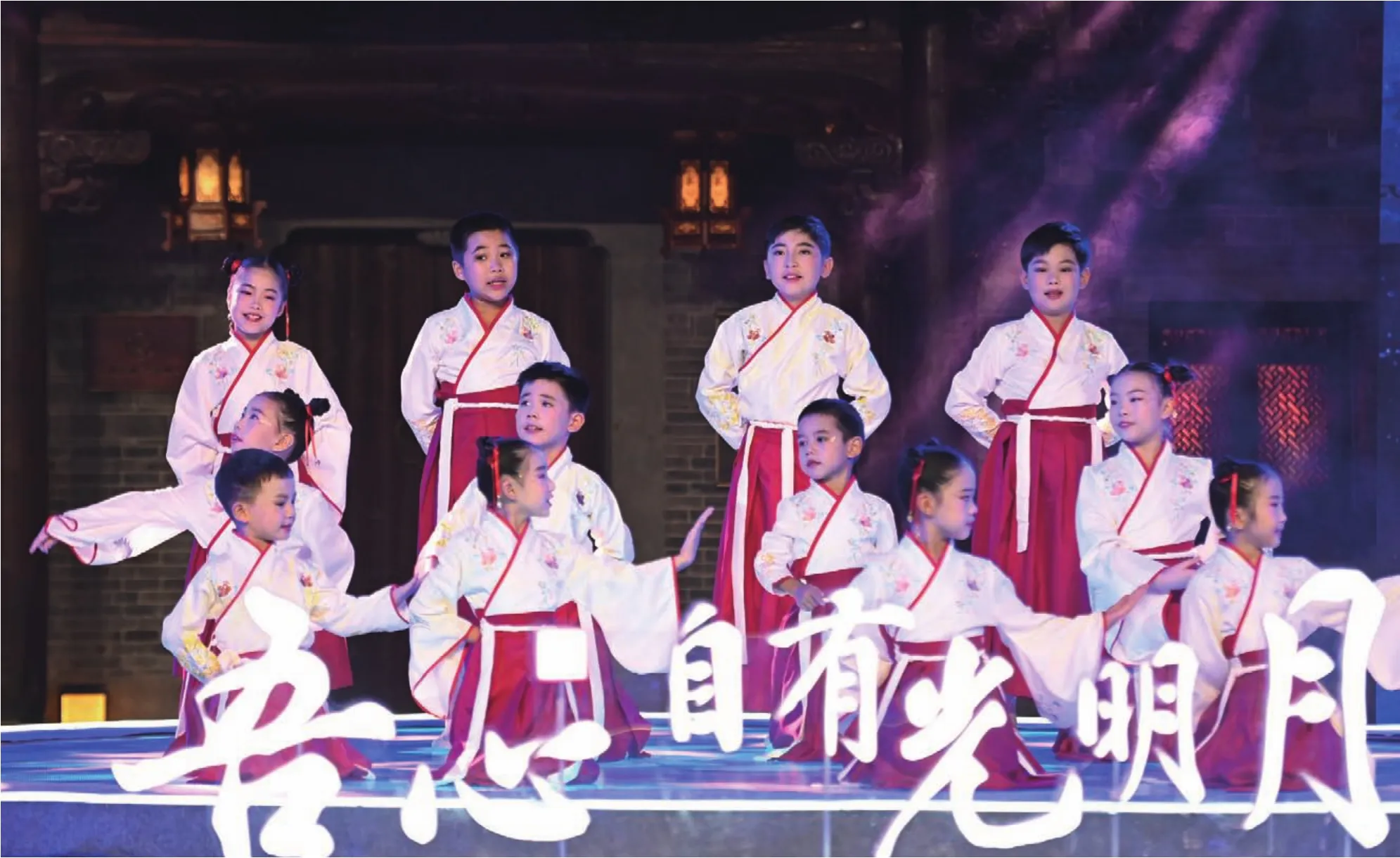
2022宁波(余姚)阳明文化季启动仪式暨“吾心自有光明月”中秋诗会。A poetry recital celebrating the Mid-Autumn Day ushered in the 2022 Ningbo (Yuyao) Yangming Cultural Festival.
Firstly, we haveLi De(or to gain virtue). The sages said that“learning from nature” helped understand the way of everything.Wang Yangming really went to try it. He sat facing the bamboo in his yard for seven days and nights without eating or drinking until he fell sick. After a lot of practice and inner suffering, in the barren Longchang of Guizhou in 1509, he finally realized that “the way of sages comes from self-sufficiency”, which gave birth to “Wang Yangmin Philosophy".
When it comes toLi Gong(or to render meritorious service),Wang Yangming's three major military achievements were impressive: In 1517, he suppressed the bandits in Jiangxi; in 1519,he pacified the Chenhao Rebellion of King of Ning; and in 1527,he calmed down the border riots in Guangxi. He made several victories in dangerous situations to turn the tide. In his mind, a firm heart was the key to success and the skill of military maneuvers.
Talking aboutLi Yan(or to achieve glory through writing),Wang Yangming regarded lecturing and preaching as more important than rendering meritorious service. In the Chronicle of Wang Yangming, there is a story that in the war to pacify the Chenhao Rebellion, Wang Yangming fought fiercely in the front while giving lectures in the rear. Indeed, he had given lectures in more than half of China.
Looking back on Wang Yangming’s way to “three Li”, he was in essence still the stubborn youth “investigating bamboo” in his former residence in Yuyao — he did not turn back until he hit the wall, which was the real kindling to inspire Wang Yangming.
In 1518, Wang Yangming wrote to the imperial court after he suppressed the bandit rebellion in Ganzhou. Thinking of the possibility of coming back to Yuyao, he excitedly wroteA Letter to the Younger Brothers. His eagerness of returning home was condensed in the last sentence — "The Master of Longquan Mountain is coming"!
The Longquan Mountain and the self-styled Longquan Mountain master are testament that his hometown brought Wang Yangming warmth and tenacity. It can be understood that in the poems and essays of Wang Yangming recorded in those ancient books and local chronicles, the mountain and hometown mostly referred to Longquan Mountain and Yuyao, which were both his real and spiritual hometown.
There are three ultimate questions in philosophy: “Who am I?Where do I come from? Where do I go?” This is also a test in life that everyone encounters. In the long history of Chinese culture,these questions are connected with the native land complex of the Chinese people. Put in the reading comprehension topics on Wang Yangming Philoshophy, the "three questions" are another key to decoding the Philosophy.
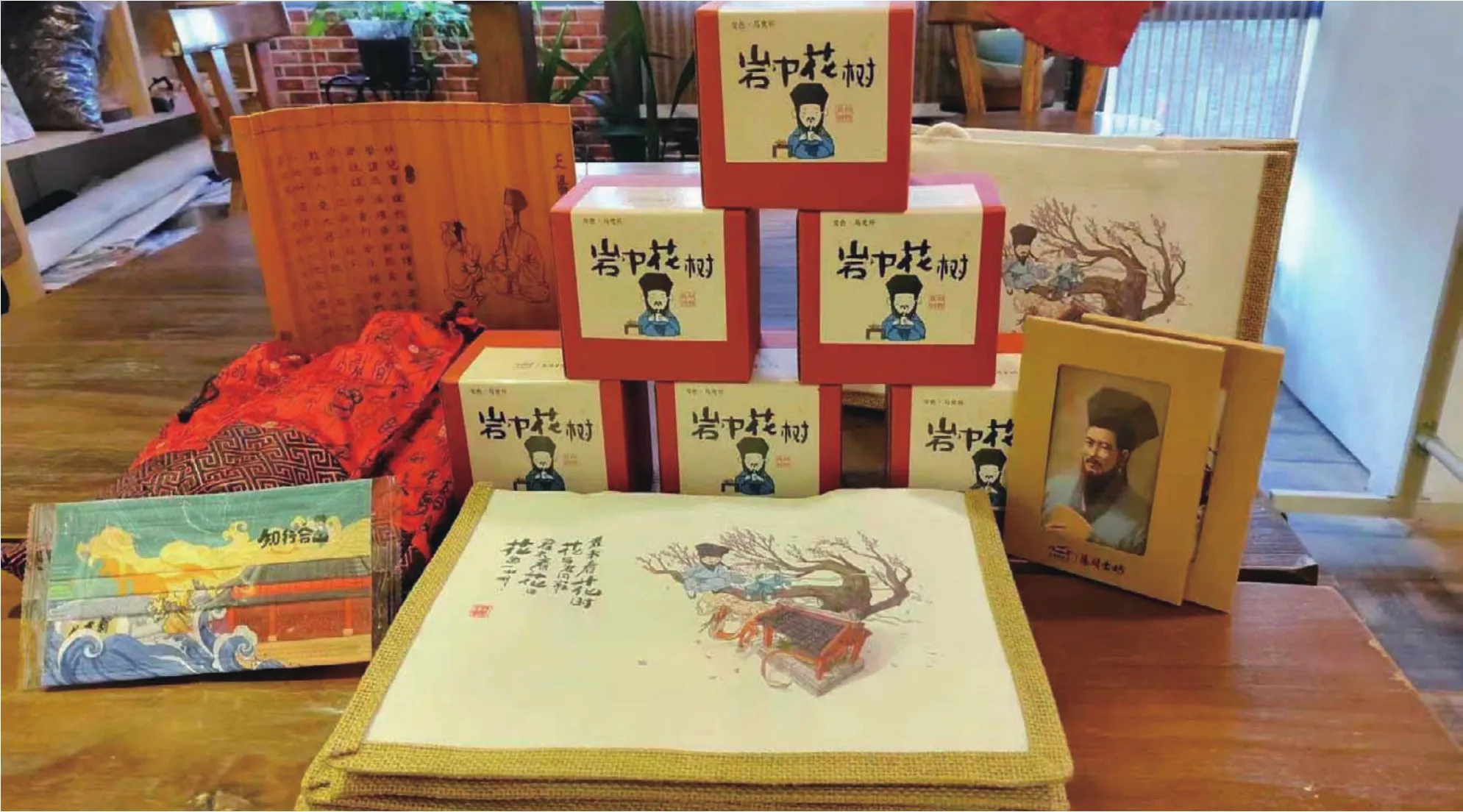
阳明文创。Cultural products related to Wang Yangming.
The “Unity of Knowledge and Practice” and the “Extention of the Intuitive Knowledge” are his famous sayings. In Wang Yangming Philosophy, the realistic requirement of “Intuitive Knowledge” is to “treat others as equals to yourself and the country as equals to your family”. Thus the deepest nostalgia is the starting point of his philosophy, and the path to realize “treating the country as equals to the family” is the tempering effort of the“Unity of Knowledge and Practice”.
Today, more than 500 years later, there are newly built Chinese memorial gateways, Wang Yangming’s Former Residence,Yangming Ancient Town and other architectural complexes in the Longquan Mountain area in Yuyao. Pilgrims keep coming,emulating the grand scene when Wang Yangming gave a lecture.
Walking in Wang Yangming’s hometown, you can catch sight of schools, institutions, enterprises, among others, prefixed with the word “Yangming” everywhere, and sense the literati atmosphere of the low-key and introverted local people, which also reveals the spirit of Wang Yangming.
Longquan Mountain, where its master once recited and lectured, is also the residence of the Yao Opera Conservation and Inheritance Center today. Shou Jianli, among the first generation actors of “Wang Yangming”, and his team have spent three years planning and performing the first Yao OperaWang Yangming.Apart from Chinese cities, they have taken it to Japan as well.Their 100 performances have been successful, giving the world a vivid Wang Yangming from Yuyao.
In the local area, there are many well-known Chinese enterprises and products, all with a core of the “Extention of the Intuitive Knowledge” and a mission as practitioners of the “Unity of Knowledge and Practice”. If you enlarge your vision, there is the spirit of Wang Yangming everywhere in the world!
This kind of “Wang Yangming” is so different from the person described in books, historical materials and stories. He is not only a self-cultivation knowledge of “sitting and prattling about the general principles”, but also a way of “getting up and doing”to materialize the spirit of Yangming and to integrate it into all aspects of today's social life in thousands of forms.
In the whole philosophical system, Wang Yangming Philosophy is also intimately connected with people’s social and political life. For more than 500 years, countries and regions in Northeast Asia with different cultures, such as Japan, Korea and Vietnam in Southeast Asia, have been deeply influenced by his philosophy, which has also changed the development pattern of their local politics, economy and society.
In this sense, the ever-changing Yangming spirit is not only a return of the fine Chinese ideology and culture, but also an expedition based on the present and pointing to the future.
